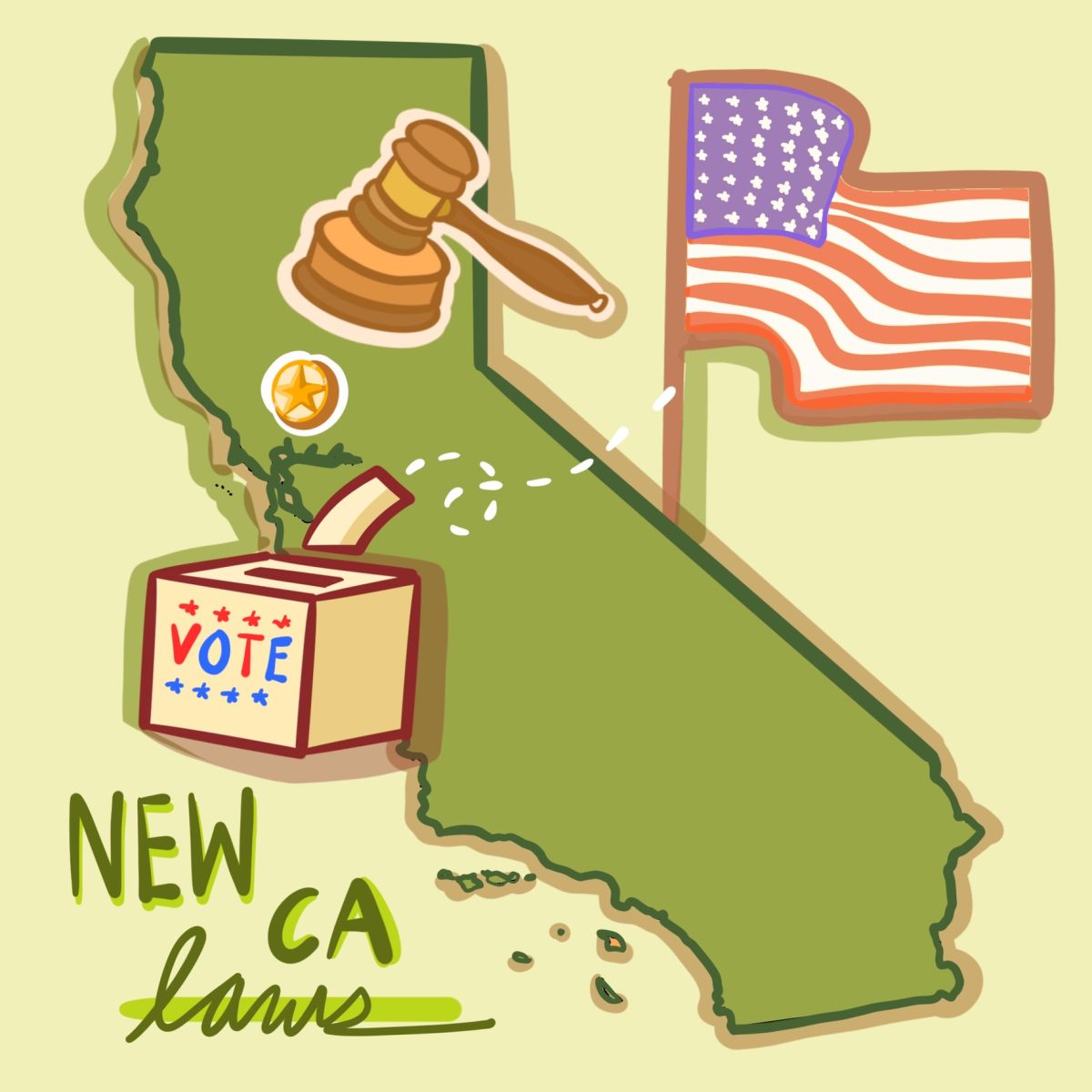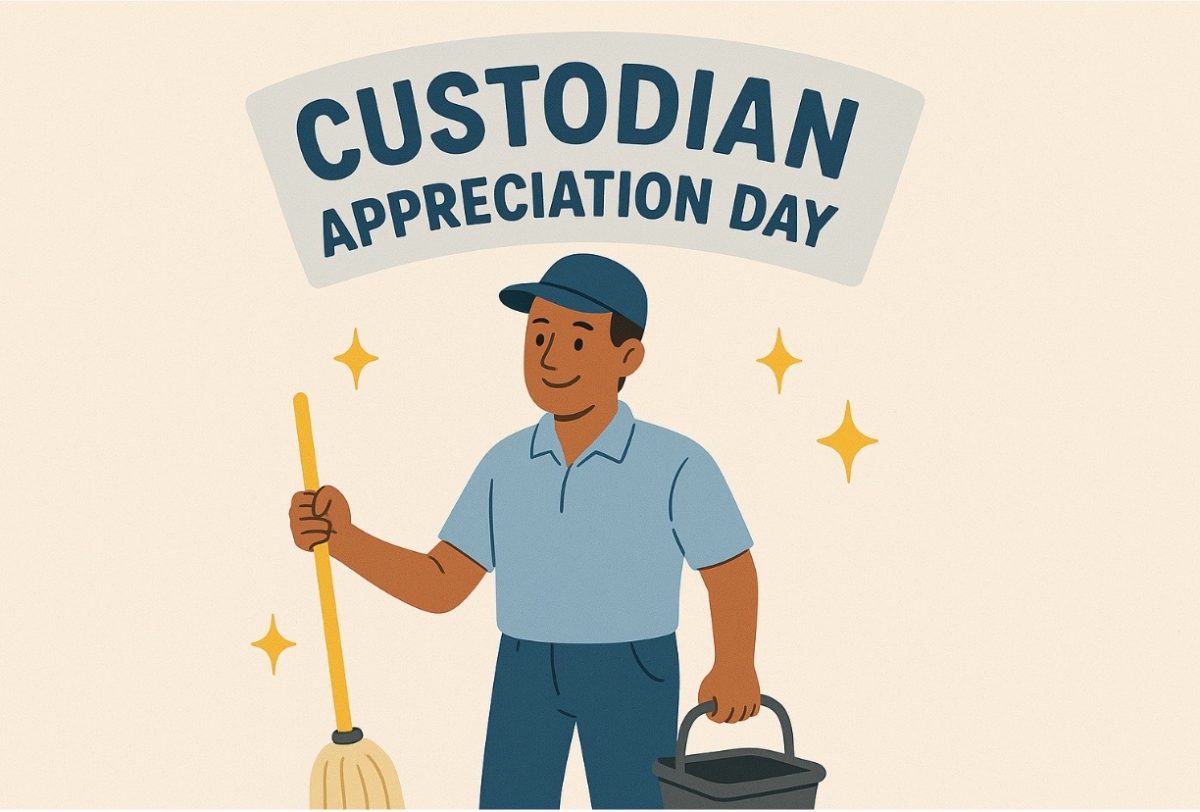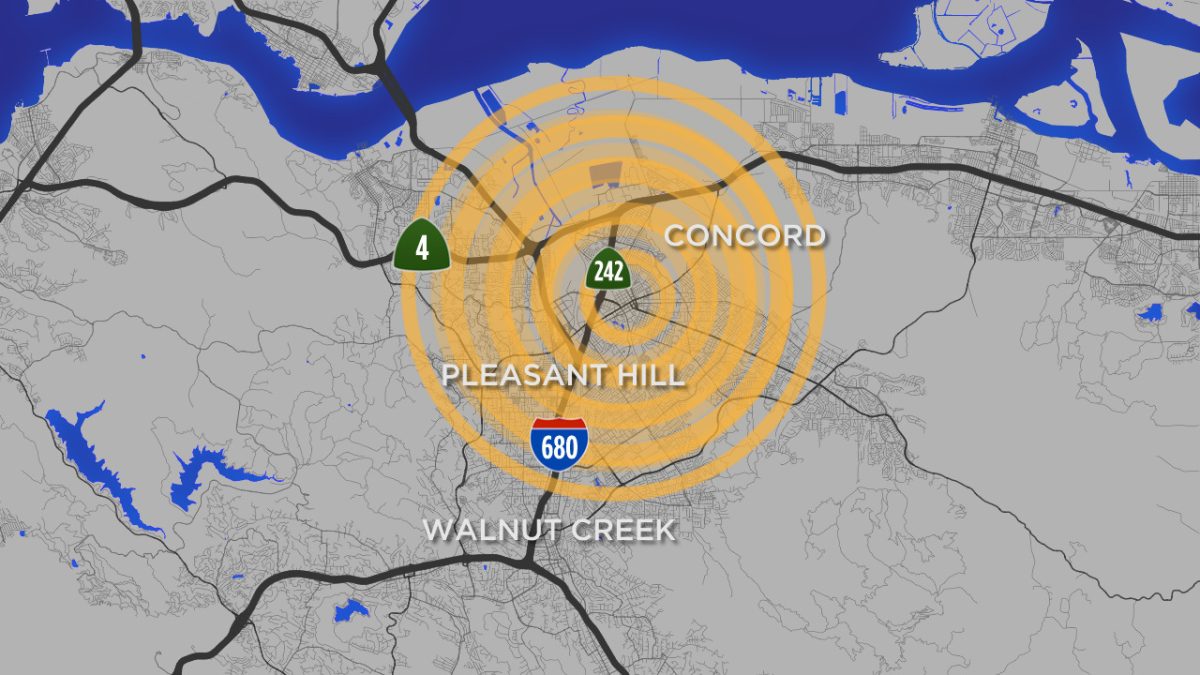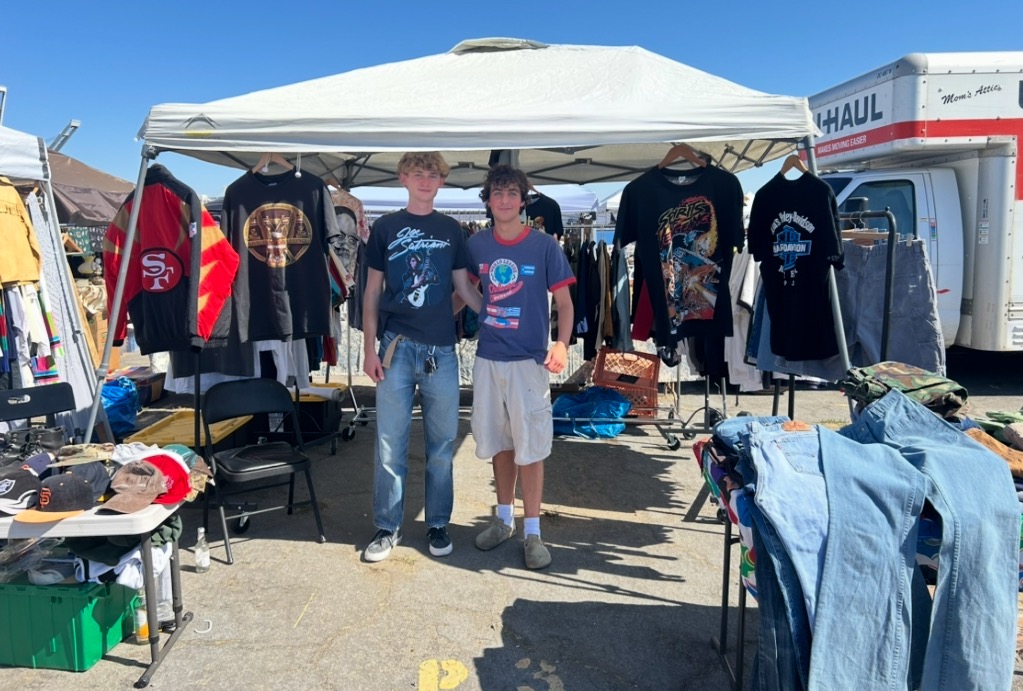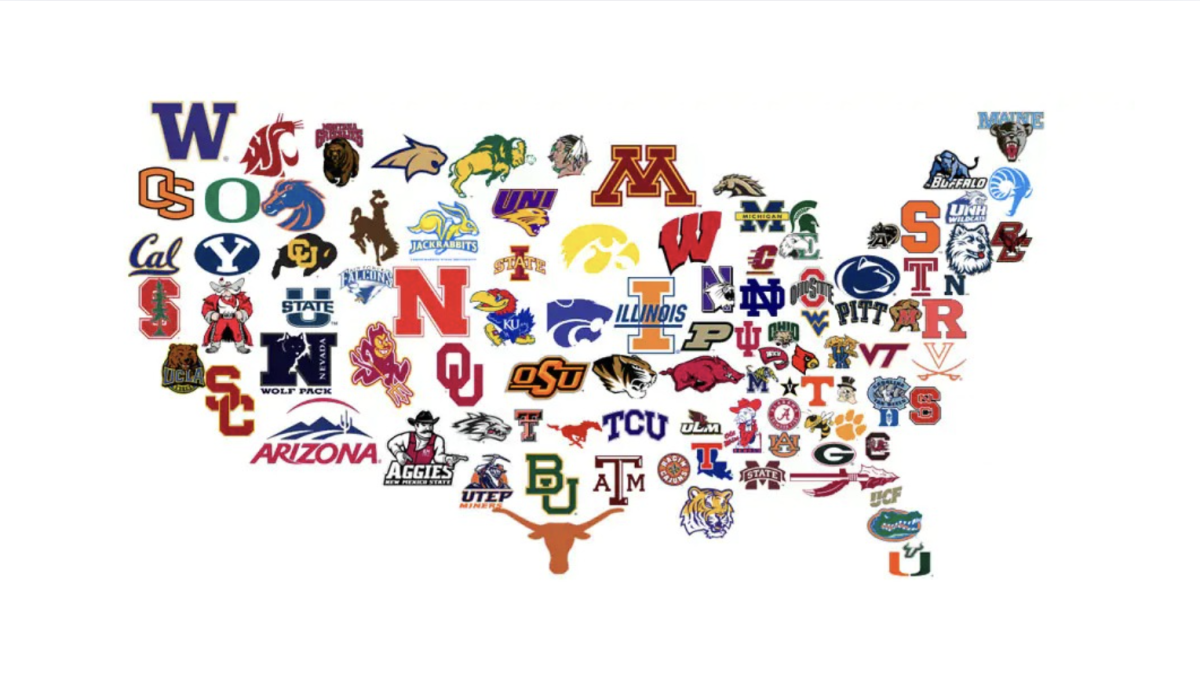The California legislature added several new bills to bring change in the new year. Enacted Jan. 1, 2024, the new laws span topics including reproductive rights, voter access, and affordable housing, and students may feel the impacts of the legislation.
“Thanks to the Legislature’s strong partnership in 2023, the state is leading by example to create opportunity, and advance and protect the rights of all Californians,” Governor Gavin Newsom said in a Dec. 29 press release.
Reproductive Rights:
Following the overturn of Roe v. Wade, the privacy of patients and healthcare providers has been at the forefront of reproductive debates. California takes a stand in these debates by protecting the privacy of not only California citizens, but visitors seeking aid as well. According to Assemblymember Rebecca Bauer-Kahan, sponsor of AB 352, companies must “protect all Californians’ and visitors’ electronic medical records related to abortion, gender-affirming care, pregnancy loss, and other sensitive services.”
Additionally, Senator Nancy Skinner’s SB 345 protects healthcare providers or patients from enforcement action from other states’ laws criminalizing or limiting reproductive and gender-affirming healthcare. Not only do these laws close major interstate loopholes regarding medical privacy, but they also offer sanctuary to those seeking or performing specific treatments.
Opioid Crisis:
In 2022, over 83,000 opioid-related overdose deaths occurred across the country, nearly 7,000 of which were in California. Gov.Newsom proposed an additional $96 million in funding to combat the opioid epidemic. In this 2023-2024 budget, $79 million funds the Naloxone (Narcan) Distribution Project and $4 million goes towards making fentanyl test strips more widely available. Moreover, the budget supplies $10 million for education, testing, recovery, and support service grants, and $3.5 million provides overdose medication to all middle and high schools like Miramonte.
Likewise, Assemblymember Matt Haney’s AB 663 allows mobile pharmacies to distribute treatment medications for opioid use disorder, as well as creating more mobile pharmacies across the state, expanding access to treatment. The signing of this bill allows people with opioid addictions to obtain vital medications as well as treatment in order to prevent future use and deaths.
Mental Health Crisis:
An existing law, the 2004 Mental Health Services Act, funds mental health plans in counties along with provisions for mental health services. Senator Susan Eggman’s SB 326 would expand the bill to include treatment for substance use disorders, as well as changing the county planning process. The law would also be renamed the Behavioral Health Services Act.
Similarly, Assemblymember Jacqui Irwin’s AB 531 would give $6.38 billion in bonds to fund 26,700 outpatient treatment slots alongside 11,150 new behavioral health beds and housing. These changes will be proposed to voters on the March 2024 ballot as Proposition 1 and will be an opportunity for many Miramonte seniors to participate in their state legislation, possibly for the first time.
Workers Rights:
Prior to Senator Lena Gonzalez’s SB 616, workers were only given three sick days. This bill now mandates that employers provide 40 hours to five days, whichever is more, of paid sick leave to their employees. The bill ensures California workers can take the time to care for themselves and their families, without risking their job. As students enter the workforce, they will have the security of knowing that they have a comfortable sick leave, regardless of the industry they choose.
Voter Access:
Polling locations used to be the focus of increasing voter turnout. More recently, however, legislatures recognize the importance of other forms of accessibility. Assemblymember Gail Pellerin’s AB 545 gives voters with a disability the opportunity to complete a regular ballot outside of any polling place, also known as curbside voting. The law also removes the requirement for voters to declare, under oath, that they are “unable to mark their ballot” so that they may receive assistance doing so.
For some, this bill is another step towards “making our elections more accessible and inclusive,” Executive Director of Disability Rights California (DRC) Andy Imparato said. “Curbside voting and other accommodations provided by this bill will empower voters with disabilities to cast their ballots with ease and confidence.”
UC Transfer Process:
UCLA will be the first UC to prioritize admission of students who earn an associate degree for transfer (ADT) from select community colleges through the Associate Degree for Transfer Pilot Program. Under Assemblymember Kevin McCarty’s AB 1291, UC’s must redirect students who meet the requirements but are denied admission and are required to offer admission to at least one other UC or CSU campus.
According to the Office of Gov. Newsom, the bill meets the goal of “streamlining the transfer process and saving students money by being able to earn two degrees in four years.” Students across the state can take advantage of these changes, shifting student focus when applying for colleges.
Public Safety:
Senator Shannon Grove’s proposed SB 14 received a unanimous senate vote when announced and was later signed by Governor Newsom to heighten penalties for human trafficking. The bill puts sex trafficking of minors as a strike under the Three Strikes law, significantly increasing prison sentences for offenders.
“With the passage of this bill, we are sending a clear message to repeat child traffickers— we intend to put you out of business and into prison,” Grove said.
Affordable Housing:
In California, it’s estimated that in order to end the state’s housing shortage, 3.5 million homes must be built by 2025. Rising rents and housing prices are results of the shortage, which has forced Californians out-of-state. Legislatures turn to affordable housing and expanding housing lines. Local governments that fail to meet state housing goals now must expedite affordable housing projects according to Senator Scott Wiener, sponsor of SB 423. These new processes may increase avenues for the City of Orinda to meet affordable housing requirements.
Senator Wiener also sponsors bill SB 4, known as the “Yes in God’s Backyard” bill, which allows housing to be built on land owned by religious or independent higher education institutions without having to go through an expensive rezoning process. The law only applies to affordable housing, aiming to combat the housing crisis.
Some seniors will be exercising their right to vote on California legislation in March when considering propositions. Careful and thoughtful attention to what’s happening locally and in the assembly and senate can sanction change across the state.
“California is more than just a state of dreamers, we’re a state of doers,” Newsom said.

